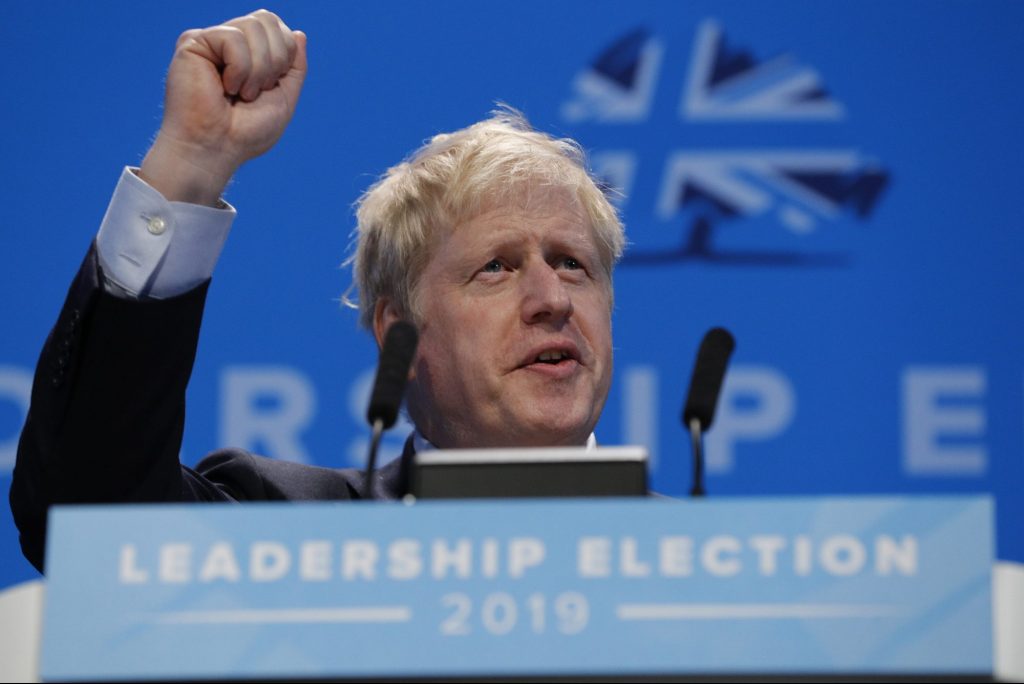Skift Take
After granting a Brexit extension, EU leaders urged the UK not to waste this extra time – but that is precisely what politicians have done. Talk of leaving without a deal has grown in recent weeks and that should terrify travel businesses, even those who would enjoy a boost in inbound visitors.
While Brexit remains the defining feature of UK life, politicians have pretty much put off deciding how the country actually leaves the European Union after leaders on both sides agreed to an extension back in April.
Kicking the can down the road to avoid making difficult decisions is nothing new in politics, but what gives this new data extra spice is that there will be a new prime minister in place to lead discussions.
That person looks likely to be Boris Johnson, the Trumpian former Mayor of London who enjoyed an unimpressive spell as foreign secretary. Since making it through to the final two of the ruling Conservative Party’s internal election, he has said the UK will leave on October 31, come what may.
That means the threat of a no-deal Brexit is looming into view again — especially as the EU has said it will not renegotiate the already agreed-upon terms — and with it the warnings about just how much of a disaster it would be.
As a reminder, no deal means the UK would leave the EU without an agreement and therefore no transition period, ending 40-plus years of integration and bringing uncertainty in areas such as laws, trade, and immigration.
‘We Can’t Afford to Wait’
Since the vote in June 2016, travel and leisure companies have been working to mitigate the changes within their control. Airlines like EasyJet have set up new operations in other European countries, and there have also been moves to alter the shareholding makeup to get around EU rules.
Although a no-deal Brexit would likely be catastrophic for many businesses, the current inaction is not helpful either.
“We have put so much planning into it, it is frustrating we can’t almost wait to see what the outcome is. We’ve got to keep focus on our business — we can’t afford to wait, and we’re working hard in the areas we can control,” said Nikki Humphrey, chief people officer at Virgin Atlantic and Virgin Holidays, at the ABTA Travel Matters event in London on Wednesday.
For businesses it’s easy — but inconvenient — to change things within their control, but it’s much harder to deal with something as nebulous as the economy in general and consumer confidence.
Going on holiday is a discretionary expense, making it a target for cutbacks if things start to go badly, and for European travel companies Brits still stand out.
This week Dana Dunne, CEO of online travel agency eDreams Odigeo, said on an earnings call that demand in the UK was at “a lower level” compared with its other markets a point echoed by Ryanair CEO Michael O’Leary back in May.
“There’s a ,later booking pattern that we’re having to stimulate bookings with lower airfares,” O’Leary said.
As the October deadline approaches, we should expect Brexit questions and worries to bubble up again, the only silver lining being that for those who focus on leisure travel, at least is it will be during the quieter winter months that any slowdown occurs.
Inbound demand
Outbound travel is just a part of the UK’s overall tourism pie, and if a depressed pound makes it more expensive to go abroad the reverse is true for visitors to the UK — something the country saw after the referendum with tourists looking to take advantage of better deals.
Virgin’s Humphrey said travel from the United States was “doing really well” both in the leisure and corporate travel sectors.
VisitBritain forecasts that spending and overall visitor numbers are poised to bounce back in 2019 after dropping slightly last year but, crucially, this estimate assumes “there will be no major disruptions to travel” because of Brexit.
There’s the possibility that even with attractive exchange rates, visitors might shun the UK if it falls into a full-blown political crisis. Just look at what happened in Catalonia after the 2017 independence referendum.
“It’s not just going to be EU nationals who will not be so keen on coming here if we get a no-deal Brexit and go off on a sour note. It will be all those other people around the world, the Chinese and others…” said Gordon Marsden a British Labour Party politician and chair of the All-Party Parliamentary Group for Tourism, who was speaking at the same ABTA event as Humphrey.
With the favorite to become the UK’s new prime minister promising to leave whatever happens on October 31, companies should at least have some certainty, the only slight problem being it might come at the expense of the economy.
The Daily Newsletter
Our daily coverage of the global travel industry. Written by editors and analysts from across Skift’s brands.
Have a confidential tip for Skift? Get in touch
Tags: brexit, eu, european union, uk, united kingdom
Photo credit: Boris Johnson, one of the two candidates to become the new leader of the Conservative Party and therefore the new UK Prime Minister. The UK's new departure date is October 31. Darren Staples / Bloomberg
